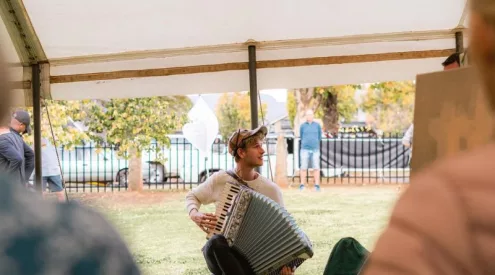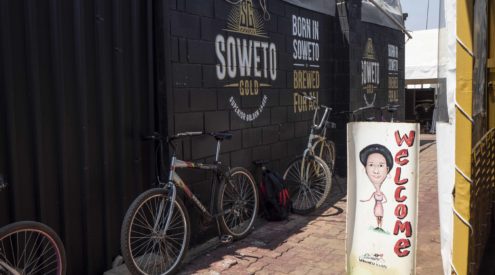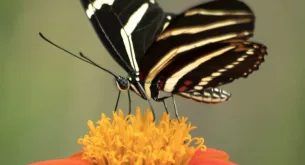Themba Hopa is a big, strong man. He is also a busy man- running a school is not for lazy people! He welcomes us warmly and asks us to wait a few minutes while he concludes some business. Paul and I walk through the well maintained grounds to examine a stretch of land that is being prepared for a group of teachers and children from the UK who will be arriving in a week’s time to help create a vegetable garden. Some of the township schools have quite large grounds and this means that sports fields and vegetable gardens can be created with the help and funding of participating projects. The idea is to plant sustainable gardens with food that can improved the nutrition of the children in the schools, and also for the greater community who will be able to work in another part of the garden on an allotment system once the garden has been established.
Visiting schools require a great deal of preparation so that their time can be used well. As this is the first time Mboniselo is going to be welcoming a school, the excitement is tangible. Apart from clearing the ground and getting compost and soil dug in, a teacher and a student are receiving permaculture training in advance. A water tank is also being installed so that rain water can be used in the garden. Calabash will continue to visit regularly once the visitors have left to make sure that the garden is being well cared for and to find out if any further help or advice is needed.
En route back to the building a handful of children run out wanting to pose for a photo (kids just love someone with a camera!) While these children come from a level of poverty that is hard to comprehend, they are friendly, smiling and wearing clean uniforms.
As we step into Themba Hopa’s principal’s office he indicates a young girl waiting on the bench to speak to him. Boy do I remember that feeling! She doesn’t look too happy.
I ask Themba a few questions:
How are you feeling about the school visit next week?
Excited! The pupils and also the parents are very excited. This morning when the parents brought their kids to school it became a meeting as they were all asking lots of questions about this visiting school. Everyone is looking forward to it.
You’ve worked with Calabash at your previous school. Why do you think it’s a good project for this school to be involved in?
The school groups and volunteers bring diverse skills to our schools. For example, English (which is very important as that is the language the teaching material comes in) IT skills and art. There is also an exchange of cultural ideas. They leave behind resources such as finance for specific needs. It is a very rich programme.
Do your teachers feel threatened by the volunteers?
No, our teachers are keen to be helped. If the human dynamics are managed then the volunteers are always welcome. We have to plan the time so that they don’t visit us during exams.
How will the children benefit from the school’s visit?
Nutritionally – the government has decided not to fund school feeding at some schools anymore and we need to provide some sustenance for our children. That girl waiting to see me – she was absent for two days and when I asked her why she said there was no food at home and she was too hungry. If the school provides food it encourages children to come, and they learn better when they are not hungry.
Why has the government made this decision? It seems crazy?
(laughs ruefully) That’s a big question. They are re-prioritizing the money.
Before we leave, Themba Hopa says sincerely “We really appreciate the work of the Calabash Trust – I say this as a principal of this school and as a board member of the Cluster of Excellence. They are doing a great work.”
Find out more about:
The Calabash Trust’s School Support and Advancement Programme.

















